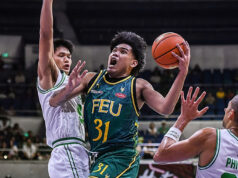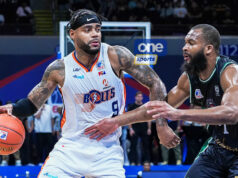It was, in retrospect, the only choice that made any modicum of sense for Eli Manning. Even though he pledged to thoroughly examine his options after finishing the current campaign with a win last month, he couldn’t but have known even then that retirement could no longer be put off. Not with his avowed refusal to continue serving as backup to a draft pick, and not with his best days long behind him. His father certainly thought so: Archie was, if nothing else, emphatic in declaring that he would never wear colors other than those of the Giants.
And so there was no surprise when Manning formally acknowledged his decision to hang up his cleats for good. There was no surprise, either, when the Giants — for whom he toiled all 16 years he played in the National Football League — made the announcement. It was typical of him to deflect the limelight, never mind his uncanny capacity to rise to the occasion when stakes were highest. Indeed, to argue that he finished with middling regular-season numbers would be to understate the obvious; his first eight years were great, and his next eight not so — leading to a neither-here-nor-there 117-117 record. Oh, but did he save his finest for the grandest stages; not for nothing did he twice lead the march to the championship against all odds.
To those from the outside looking in, the dichotomy may be striking. Manning never got close to being an All Pro selection, and yet has Super Bowl Most Valuable Player awards from the Giants’ 2007 and 2011 campaigns — a distinction accorded only a handful in the history of the league. And he earned it by beating the powerhouse Patriots, with Tom Brady, arguably the greatest of all time under center, on both occasions. Among others, his was the throw that led to the remarkable “helmet catch” during the game-winning series of Super Bowl XLII; the completion of a wild-card run to the top foiled a perfect season by the overwhelming favorites. And, among others, his were the passes that began a productive, if bizarre, final scoring drive in Super Bowl XLVI; his 296-yard, one-touchdown, zero-interception aggregates turned a 9-7 season into yet another triumph by the vast underdogs.
Clearly, Manning has reason to hold his head high. He thrived under extreme pressure, not often surrounded by talent while invariably subjected to intense scrutiny in the media capital of the world. Fellow Giants quarterbacks Phil Simms and Jeff Hostetler did so, too — but, really, he deserves to be named alongside such all-time greats as Joe Montana, Bart Starr, Terry Bradshaw, and, yes, Brady even more. He did his best and exceeded outsized expectations with a work ethic that underscored his refusal to give in to common thresholds. He played even when his body told him he shouldn’t have — and he gave his all every single time. Few can say the same, and fewer still while blessed with success.
Anthony L. Cuaycong has been writing Courtside since BusinessWorld introduced a Sports section in 1994. He is a consultant on strategic planning, operations and Human Resources management, corporate communications, and business development.



